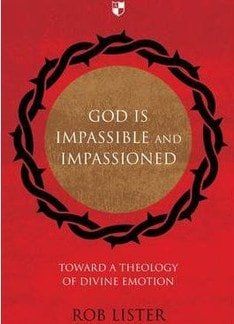God is impassible and impassioned
Rob Lister
IVP Apollos, 288 pages, £16.99,
ISBN: 978-1-84474-601-9
Star Rating : 5
This is an important book because the question of God’s impassibility touches on so many other theological issues, not least the understanding of God and suffering.
Traditionally, the church held the view until the twentieth century that God was impassible, ‘that he could not experience emotional changes of state’ within himself from his relationship and interaction with human beings and the created order.
The catalyst that brought change to this understanding of God was not academic or theological, but human suffering. The experience of the sufferings of Auschwitz became the driving force behind the new thinking that ‘God is passible’. Jurgen Moltmann was a key thinker who built this change into his theology.
It is this understanding that Lister challenges in his book. Indeed, one reviewer describes him as ‘going where few evangelicals have gone before’. Whereas the present consensus that God is passible began from man’s suffering, Lister starts from God’s revelation of himself to man.
The book is divided into two parts. Part one, ‘Doctrine of divine impassibility in historical context’, surveys the history of the doctrine in question from the early church through to Calvin and Stephen Charnock.
The author makes a most able refutation of the hypothesis that ‘the early Fathers were more influenced by the Greek ideas of God’. He points out that there is ample evidence to show that they deferred to biblical authority in matters of Christian doctrine.
Part two is entitled ‘A contemporary case for the understanding of God as both impassible and impassioned’. Here the author develops the doctrine biblically and introduces the scriptural balance between God being impassible and impassioned — what he describes as the ‘two-pronged approach’.
In this way, he avoids the danger of God being viewed as inactive or uninterested in man and he sets out the theological model for this approach.
This is a fine work, showing depth of scholarship and balance in handling such profound doctrines. As Professor Bruce Ware points out, ‘Lister’s instinct is to go with the Bible’. This is a book for all ministers and laymen and cannot be too highly recommended.
R. J. Johnston
Ballymoney



